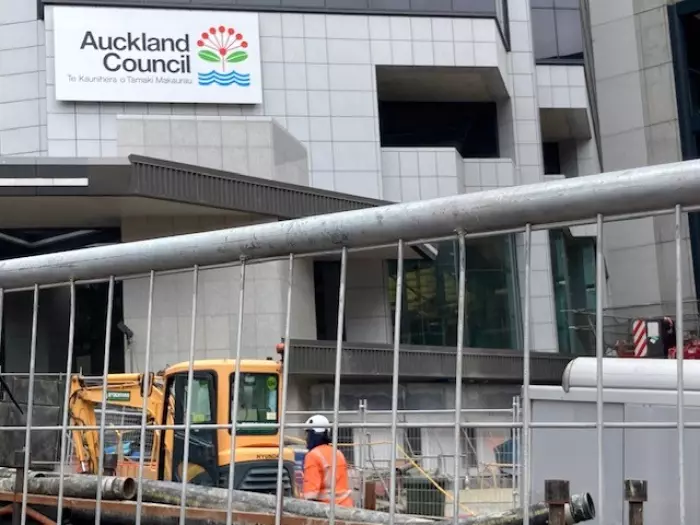As Auckland celebrated the 10th anniversary of its transition to a super-city this week, Desley Simpson, Auckland councillor and chair of its finance and performance committee noted the unitary council had achieved a cumulative $1.9 billion in savings over the past decade.
Speaking to media at the launch of the council’s annual financial results, Simpson said, on average, the council was spending $316 million less operationally than the seven district and regional councils did pre-amalgamation in 2010, which created one mega-council and one mayor.
Taken as a whole, the lower spending would have added up to more than $3 billion in savings, but presumably she was factoring in non-operational and unplanned costs. For example: costs attributed to the impact of covid, which she said had a net negative impact of $79 million on group revenue during a "year of four quarters."
Regardless of those impacts, Mayor Phil Goff said the super-council will continue to charge ahead with its longer term plan to catch up with “critical infrastructure shortages which have resulted from years of not keeping up with the level of population growth in the city."
This translated to $2.6 billion in capital investment in the past year, a $520 million increase on the prior year. This is broadly the speed required for the upcoming eight years with the council budgeting for $26 billion in capital spending.
That means continued borrowings at historically high levels, which last year saw debt climb $1.3 billion to a total of $9.9 billion.
“Here you are talking about infrastructure which lasts over generations, so the appropriate way to fund infrastructure is through debt.” This could result in net debt-to-revenue ratios pushing beyond the current council ceiling of 270 percent to possibly higher than 290 percent in the short-term, which he said the council was happy with.
Compared to a first-home buyer at 80 percent-plus borrowing to valuation ratios, it was was a "prudent" place to be.
'Prudent' is a term frequently used by the council these days, essentially as a catch-all to explain walking a tightrope between fixing up the city's housing, transport and water shortfalls, while keeping a lid on borrowing.
Simpson makes the point this is a tough act given reduced returns from the Ports of Auckland and Auckland Transport in particular, largely because of covid-inspired lockdowns.
But at the root of that type of approach, particularly with reference to adopting a long term plan, is the set of assumptions used at the outset, in relation to both forecasting and debt management.
The latest set of results throw up some questions as to how the council's treasury could perhaps better manage its debt, particularly given record low interest rates.
An interest rate hedge loss
To mitigate its interest rate risk, councils and local authorities use fixed rate debt and financial derivatives called interest rate swaps, which are aimed at reducing volatility and providing a level of certainty in relation to future interest costs.
Auckland Council mechanisms include forward-start swaps to hedge the base rate on anticipated borrowing, with risk measured through ‘sensitivity analysis’ based on possible movements in the interest rate curve, the impact of potential surplus or deficit, and equity calculated using the group and the council’s financial instrument exposures.
In this case, the rapid fall in interest rates as a result of the pandemic saw the council book a net loss of $755 million for the year to June 2020, which a council finance spokesperson described as “a fair value decrease in the market value of interest rate hedging contracts.”
While this was moderately offset by net gains of $90 million on foreign exchange movements, it served to drop what otherwise would have been a group level operating surplus of $752 million to $35 million after income tax.
And while interest costs are budgeted, interest rate hedging contract gains or losses are not.
"As we typically hold these hedging contracts until maturity, the unbudgeted losses will reverse over the remaining term of the contracts,” he said.
Those interest rate hedging contracts, used to provide certainty over interest costs, are akin to a homeowner opting into a fixed mortgage and removing the volatility of floating rates.
But in the case of financial derivatives, there are always two sides to every trade and it is clear in this case the council is on the wrong end, to the detriment of ratepayers, who lose the opportunity cost attendant with lower interest payments.
Questions asked
While the fixed payments won't change, the council did incur tangible losses attributed to the decline in interest rates, resulting in finance revenue earned from loans to council-controlled organisations and short-term cash deposits being $21 million below budget.
Since balance date, interest rates have reduced further, meaning prospective savings to ratepayers are continually being lost.
Steven Holden, an international financier with Neu Capital NZ, said while derivatives can be a "very useful way for treasurers to mitigate interest rate, currency and commodity risks," he questions why such a transaction was able to get sign-off in the first place.
"This seems a very strange thing to do in an environment of extremely low interest rates over the past few years, coupled with predictions for no material increases to future interest rates, not to mention talk of future negative interest rates."
Holden said there are hundreds of examples around the world of sharp bankers selling these types of products to the public sector and pension fund managers controlling large amounts of money, "and in many cases selling the benefits to less sophisticated or inexperienced buyers who don’t fully understand the associated risks and downsides, and who are generally not living under the same performance incentives as the private sector."
So given the zero sum game, it is a case of, bankers 1: ratepayers -1.














